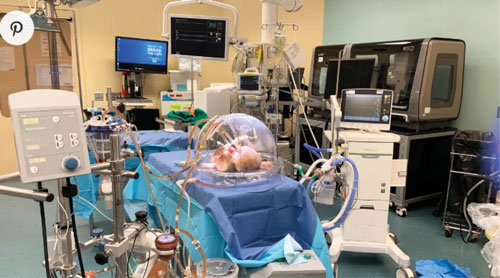This was a proof-of-concept study that involved lungs that were not suitable for transplantation.
Currently donated organs must be given to a recipient of a compatible blood type, which can lead to long wait times for an organ.
A new study published this month in Science Translational Medicine is suggesting that it may be possible to convert blood types safely in donor organs intended for transplantation.
If this becomes commonplace, organ donation could be far more common and accessible.
Traditionally the compatibility of blood types between donor and recipient has been vital to the success of organ transplants. This has led to long waitlists, inequiable organ allocation, and a high risk of mortality for patients on the waitlist.
How has organ donation worked historically?
One of the key components to organ donation and transplant is blood matching. Each person has a specific blood type from four main ones. The eight most common blood types are A+, A-, B+, B-, O+, O-, AB+, AB-.
These are based on whether or not red blood cells have certain proteins, called antigens. Blood has to be compatible between donor and recipient. Otherwise, the receiving body’s immune system will interpret the new blood type as foreign and will reject the new organ.
But people with Type O blood are called universal donors. These people lack antigens which can trigger an immune response.
Similarly, Type AB blood is known as the universal recipient, meaning they can receive blood and organ donations from all blood types.
These blood types aren’t as common as Type A and B, though, which is one of the reasons why organ donation waitlists grow so long.
“With the current matching system, wait times can be considerably longer for patients who need a transplant depending on their blood type,” said Dr. Marcelo Cypel, Surgical Director of the Ajmera Transplant Center and the senior author of the study, in a statement.
According to Dr. Aizhou Wang, Scientific Associate at Cypel’s lab and first author of the study, patients who have Type O blood and require a lung transplant experience a 20 percent increase in mortality while waiting for a matched organ.A universal Type OThe study, conducted by the Latner Thoracic Surgery Research Laboratories and UHN’s Ajmera Transplant Center, explores the possibility of creating universal Type O organs, which could improve fairness in determining who gets an organ donation.










